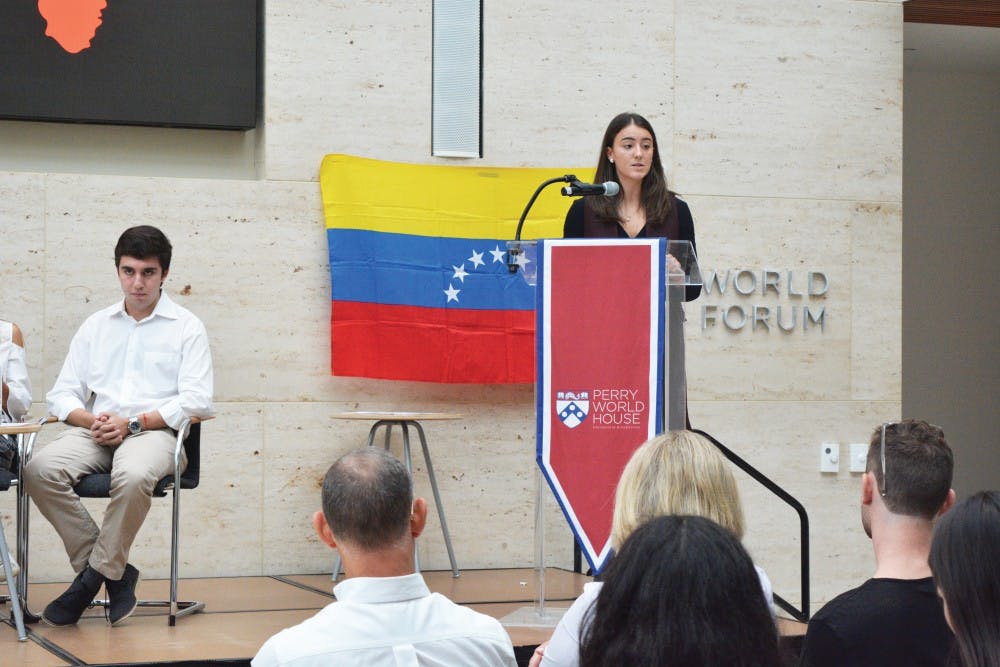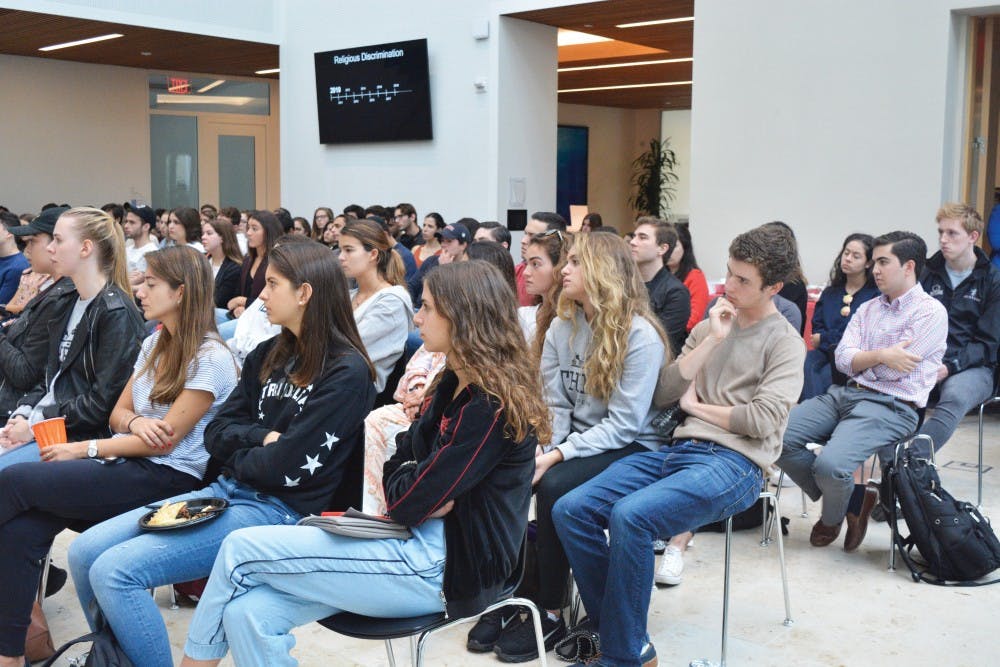
Five Penn students shared accounts at the Perry World House of their families' struggles living as victims of political repression in Venezuela and Nicaragua. Many of the students had family who played roles in resisting the government, and the students spoke about the repercussions their families face to this day.
The event, "Testimonios: Voices in Solidarity Against State Repression," was co-sponsored by the Latin American and Latino Studies program and by the Wharton Latino Club and took place at the Perry World House Friday.
Among the speakers were Engineering senior Andre Rappaccioli, Wharton junior Eugenia Carmona Aristeguieta, College sophomore Jimena Nestares, and College sophomore Leon Herdan. Rappaccioli, born and raised in Managua, Nicaragua, discussed the crisis in Nicaragua, while the remaining speakers, all born and raised in Venezuela, spoke about the Venezuelan unrest.
The event’s speakers shared similar sentiments of hoping the event raised awareness of government repression and political unrest in Nicaragua and Venezuela. Herdan explained that the event aimed to personalize the stories seen on the news.
“It’s more impactful to connect a theory with personal stories and leave no space for misconception," Harden said.
College sophomore Valentina Losada, who is the chair of Latin American Affairs in Wharton Latino, said the event aimed to raise awareness of issues that otherwise have little relevance in the Penn community. The club President Antía Vazquez, who is a College and Wharton senior, said she agreed.
“By having these conversations you not only better inform people about what’s going on in these regions but you also build awareness of and solidarity with those who are suffering," Vazquez said.

The Venezuelan students overviewed the history and current political unrest in the country, detailing the rise to power of Hugo Chávez and current state of conflict stemming from policies of President Nicolás Maduro.
Nestares described her family’s involvement with RCTV International, a subsidiary of Radio Caracas Television, which she said resulted in her family members "being persecuted for telling the truth."
She recounted her cousin was kidnapped by the armed forces during a protest, and after negotiating for his release, he came home with two broken ribs. Nestares also described an incident when she and her brother were stopped at a police checkpoint and the police beat her brother, even after paying the bribe for a safe release.
Herdan, too, described his family fleeing the country in a matter of six days after being blacklisted by the government, and Carmona spoke of her grandfather’s premature death due to cancer, which was misdiagnosed by doctors who lacked vital resources.
As the discussion turned to Nicaragua, Rappaccioli summarized the history of the Nicaraguan government. The unrest began in April 2018 as the government amended the Institute for Social Security to provide less funds to those who once benefitted from the policy due to a budget deficit. He additionally cited the 512 killed and 4,000 injured during the rise in protests between April and September.
He described how he cannot return to Nicaragua due to fear of retribution after being blackmailed by its police and paramilitary groups. “I am a refugee with a student visa,” Rappaccioli said. His mother and brother, who are actively involved in the resistance, receive dangerous threats. “A man called my brother and said that he’d kill our dog, rape our mother, torture me, and kill us all when we least expected it.”
In discussing Wharton Latino’s role in sponsoring the event, Valentina and Antía emphasized the club’s commitment to philanthropy and raising awareness of issues affecting Latin America as well as the fact that the majority of the club’s constituency is comprised of students born and/or raised in Latin American countries, meaning that many of the club’s members have personal experiences or stakes in the issues being discussed.
The Daily Pennsylvanian is an independent, student-run newspaper. Please consider making a donation to support the coverage that shapes the University. Your generosity ensures a future of strong journalism at Penn.
Donate







